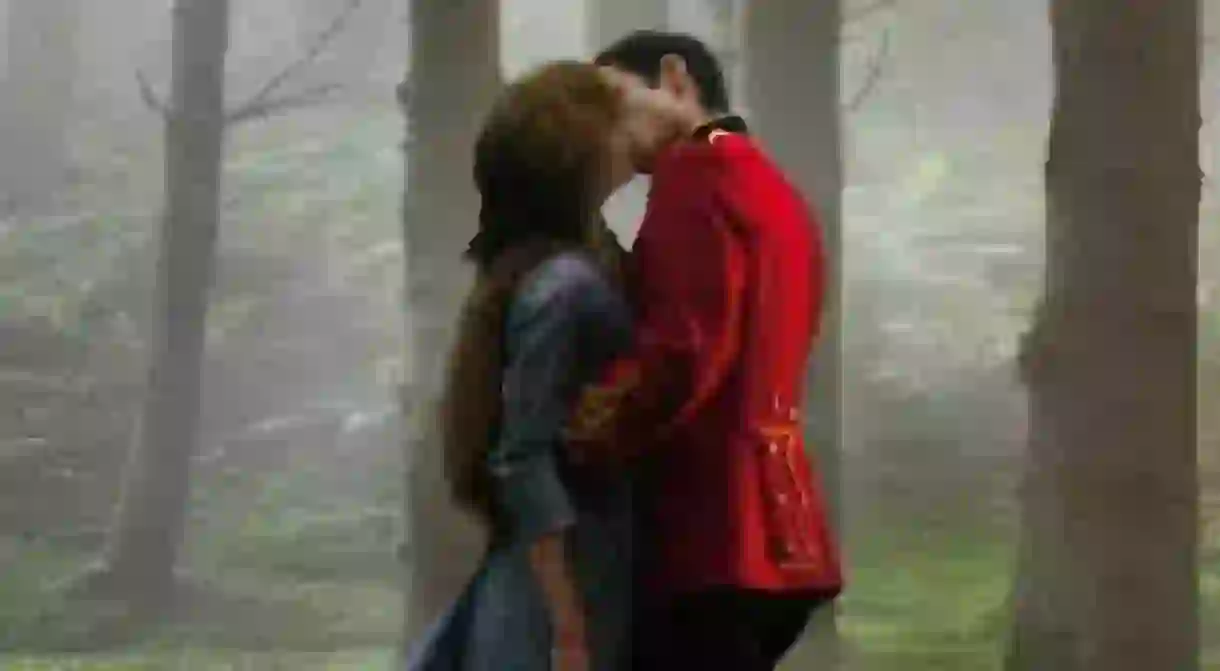Is The 2015 'Far From The Madding Crowd' As Good As The 1967 Version?

John Schlesinger’s 1967 film of Thomas Hardy’s Far From the Madding Crowd was a tough act to follow, but that didn’t stop the Danish director Thomas Vinterberg making a fresh version. Does the Carey Mulligan vehicle live up to the Julie Christie original and retain the seductiveness of the novel? Or is it toothless in comparison?
The long-awaited 2015 adaptation starring Mulligan as Bathsheba Everdene — one of Hardy’s best female characters — has its strong elements, but it is nowhere near perfect.
One of the film’s great advantages comes in the form of Mulligan’s lead. Her countryside roughness paired with her stunning beauty encapsulates Hardy’s Bathsheba in a way that few actresses could pull off today. Mulligan’s girlish prettiness combined with her assertiveness allow the actress to portray Bathsheba convincingly. Playing a role that is arguably the first literary female heroine of her time is a feat that Mulligan tackles with grace. Bathsheba is intelligent and ‘excited, wild, and honest as the day,’ as Hardy describes her in his original text. She is a woman that cannot be tamed but still, crucially, tows the moral line.
There are moments in the film that are unconvincing, one being Bathsheba’s submission to Sergeant Troy – played by boy-with-a-moustache, Tom Sturridge. It contradicts the strength we witness up to this point in Mulligan’s Bathsheba. Although this may be due to the script’s omission of much of the detail in these characters’ relationship, it is still a conspicuous low point.
Tom Sturridge’s Troy is one of the weaker elements in this 2015 adaptation. Compared to Terence Stamp’s 1967 portrayal of the famous brute, Sturridge’s Troy appears like a child dressed as a soldier, punching way above his weight. This may not be entirely Sturridge’s fault, as his character is distinctly underwritten in this script. For example, the vital moment in the novel where Sergeant Troy spots Bathsheba in the crowd while he is performing as Dick Turpin in the circus is missing in this adaptation, making Troy’s return from the dead farcical and disjointed.
One performance that stands out, on the other hand, is Michael Sheen’s stunning embodiment of William Boldwood, the second of Bathsheba’s suitors. The neighboring middle-aged landowner becomes fatally besotted with Bathsheba, and Sheen holds together a delicate balance of desperation and adoration phenomenally well. His performance easily matches that of Peter Finch in the 1967 adaptation, his face filled with agony as he tries with all his energy to court Bathsheba and make her his wife.
A scene that demonstrates Sheen’s prowess is when Boldwood confides in Gabriel Oak, Bathsheba’s original suitor and man-about-the-farm played by the dreamy Matthias Schoenaerts; the viewer can truly experience the grief he feels, making Sheen’s Boldwood entirely convincing, and as close to Hardy’s original character as you can get.
Vinterberg and David Nicholls (the One Day screenwriter fame who wrote the Madding screenplay) have crammed a novel of copious detail into a movie that is just shy of two hours. There are moments where their selection of content chops up the original Hardy narrative. It skips from famous scene to famous scene, sacrificing some of the crucial character development we experience in the novel. Nonetheless, this is a warming, if flawed, adaptation of one of Hardy’s greatest classic texts.













